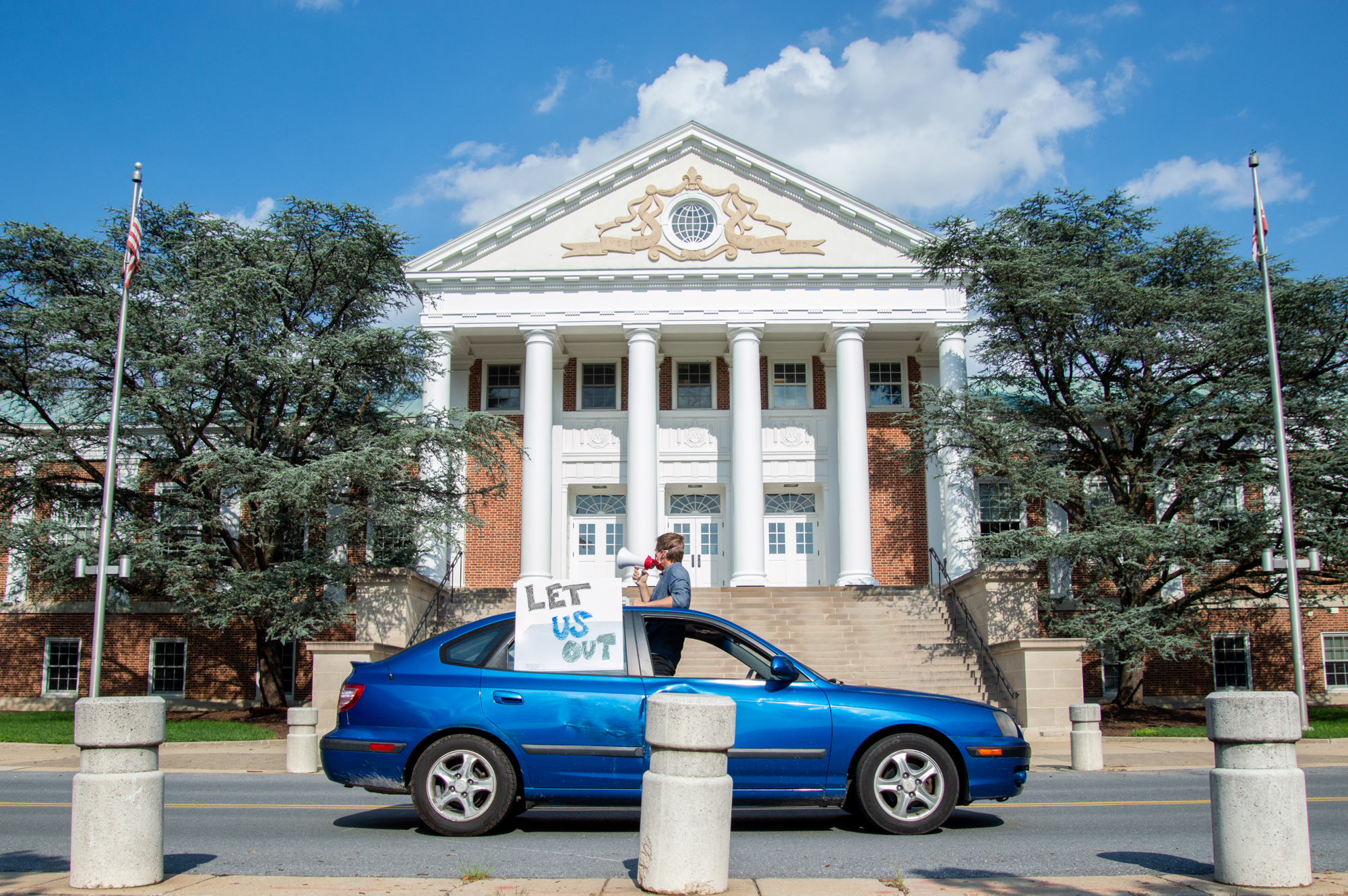Views expressed in opinion columns are the author’s own.
Because I have an unhealthy compulsion, I’ve been following University of Maryland news pretty closely in the months since my graduation. Shit’s looking grim. The university recently announced it is delaying all in-person instruction for two weeks — not nearly a long enough delay to allow a significant shift in the fight against the coronavirus. Of course, the “reopening” is a dangerous farce to begin with: The vast majority of classes will be online, but the administration insists on stuffing dorms and dining halls to collect room and board payments.
If this goes forward, folks will get sick — most concerningly older staff and faculty, who are at higher risk for hospitalization and death. University officials have made it clear they don’t care much about the health of low-paid staff. In preparation for the entirely unnecessary return to dorms, maintenance workers were forced to clean buildings with the air conditioning turned off — unsurprisingly, several employees fell ill. Meanwhile, this university’s new president, Darryll Pines, tweets pictures of himself going on jogs and holding Gov. Larry Hogan’s book.
If students and staff are to have any hope of living and working in dignity at this university, they’ll need to constantly struggle against powerful individuals and institutions that simply don’t have their best interests at heart. Campaigns like the effort to release students from their on-campus apartment leases will need to be waged over and over again. The union representing university employees will need to be prepared to use increasingly radical tactics.
A few months ago, I wrote a “final Diamondback column,” and then I ended up writing columns all summer. This is actually my last piece for The Diamondback — I promise — and I want to use the opportunity to offer, with humility, just a bit of advice to younger students. Because here’s the deal, kids: The people who run this university aren’t necessarily any smarter than you are. They most certainly are not any more humane or moral than you are. The difference between you and them is that they’re in power. Your task is to figure out how to develop leverage against them: In what ways do students have power? In what ways is the power of university leaders vulnerable?
While I was a student at this university, our leaders did a lot of bizarre and stupid stuff. The Counseling Center advertised a “safe space” for white students to discuss race, called “White Awake.” After an investigation into abuse in our football program, the University System of Maryland bafflingly retained the head football coach while forcing out the university president — and then, after everyone got pissed, called take-backsies, firing the football coach and keeping the president on for more than a year. Head men’s basketball coach Mark Turgeon, despite drowning in NBA-level talent, could never really figure out that you’re allowed to deploy these things called offensive “plays.”
Yet while it’s fun to laugh about the occasional clownishness of the university powers that be, one should never forget this institution can be a deeply cruel place. Its affluence is inseparable from the military-industrial complex; I’ve repeatedly criticized our tight relationship with companies whose weapons are used to wage criminal wars overseas. President Pines himself is a product of that bloodstained relationship: During the height of the Iraq War, he helped the Pentagon develop a weaponized drone literally called “Long Gun.”
The administration has long had little regard for those whose labor makes the university run. Back in 2018, dozens of housekeepers fell ill after being asked to clean mold without proper training or equipment. And institutions meant to serve vulnerable students — such as the Office of Civil Rights and Sexual Misconduct and the Counseling Center — have been financially underserved, while gobs of cash flow to the pet projects of rich donors.
I would imagine most students who get into selective institutions like this university hold the belief, consciously or not, that the people in charge are there for some good reason. I believed this, too. Unfortunately, more often than not, that’s just not true. And so, if the administration is doing something that seems stupid, it probably is. If it’s doing something that seems wrong, it probably is. The vast majority of people who learn, work and teach at this university are smart, decent people. Don’t let the doofuses running this place trick you out of having a say.
Max Foley-Keene graduated in the Spring 2020 semester with a Bachelor of Arts in government and politics. He can be reached at maxfkcap2016@gmail.com.



